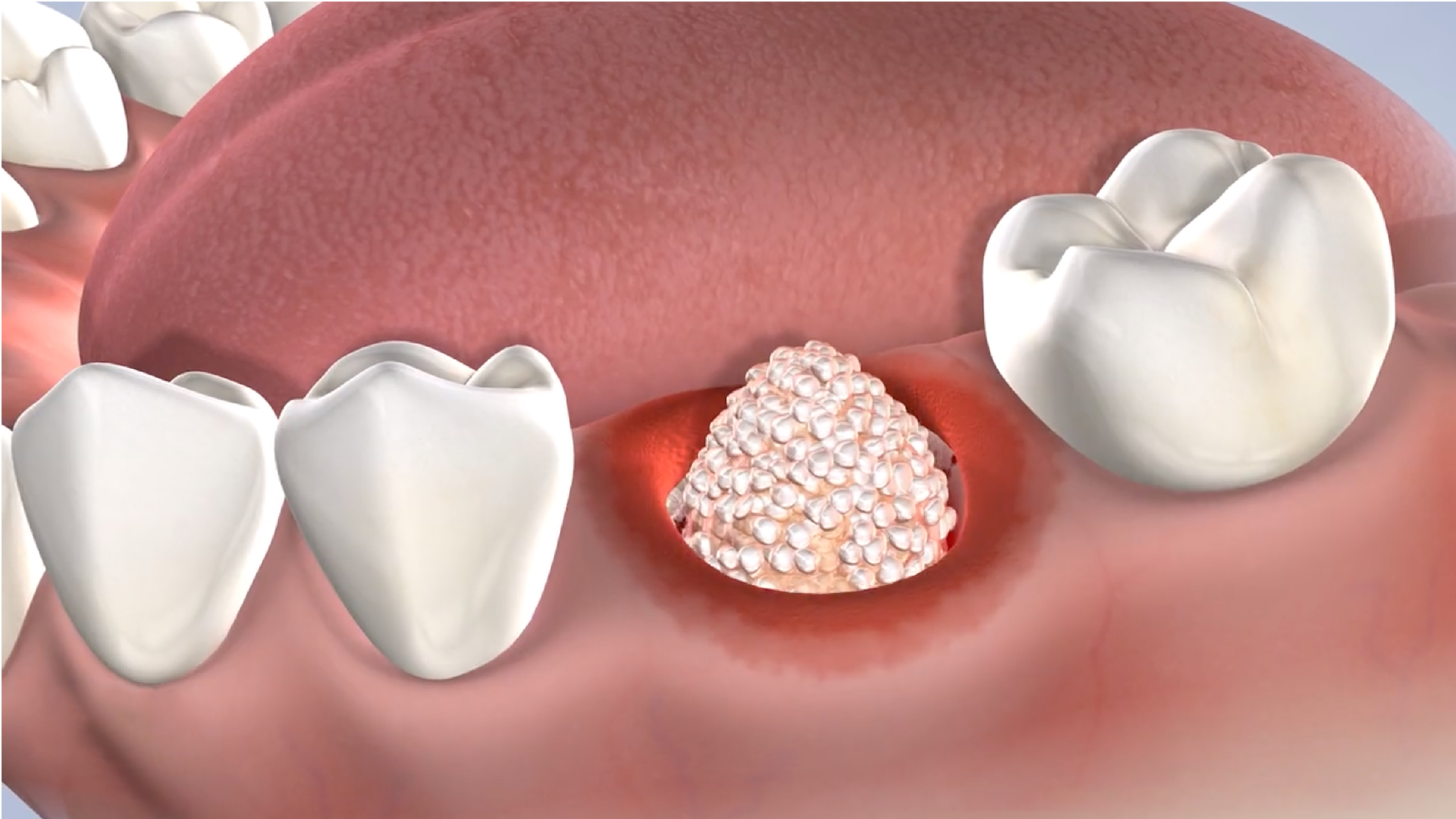Post-Operative Instructions: Bone Grafting
BACKIn addition to the general post-operative instructions, we would like to emphasize a few points regarding post-operative care for bone grafts.
Your bone graft is made up of many particles. You may find some small granules in your mouth over the first several days. Do not be alarmed by these. It is normal to have some of them come out of the graft site and into your mouth. There are some things you can do to minimize the number of particles that become dislodged:
Diet
A soft, mild, and nutritionally balanced diet should be consumed for 2–4 days (or longer if necessary) after your surgery. As the tissue around the bone graft heals, you can return to your normal eating routine.
Swelling
Swelling from oral surgery is normal and reaches its maximum in 48 hours. Keeping the head elevated with 2 pillows when lying down can minimize facial swelling. Swelling can also be minimized by applying cold compresses to your face (30 minutes on, 30 minutes off) for the first 48 hours. After 48 hours, warm compresses will help reduce the swelling. These should be continued (30 minutes on, 30 minutes off) until the swelling has subsided.
Rinsing
We suggest letting the blood clot stabilize with no vigorous rinsing or spitting for 3–5 days. After the first day:
- You may softly brush the adjacent tooth surfaces as long as the brush does not disturb the graft site.
- Avoid applying pressure with your tongue or fingers to the grafted area, as the material is movable during the initial healing period.
- Do not lift or pull the lip to look at the sutures. This can actually cause damage to the wound site and tear the sutures.
Denture or Flipper
On the day of your surgery, you will be given specific instructions regarding when you should wear your denture or flipper. Possible options may include:
- Leave denture or flipper out of your mouth until you are instructed to wear it. It must be realigned before wearing it.
- Leave your denture or flipper in place for 48 hours then remove it. Wear the denture or flipper only as instructed by your doctor.
- Wear your denture or flipper as instructed.
Other general precautions include:
- If any sores or swelling develop around or under your denture or flipper, leave it out of your mouth and call the office.
- If you cannot place your denture or flipper back in your mouth, leave it out and call the office.
Bruising
Sometimes bruising may occur 24 or 48 hours after surgery has been performed. Application of warm compresses to the involved area (30 minutes on, 30 minutes off) will expedite the healing process.
Bleeding
If you experience heavy bleeding, it usually means that the gauze pads are being clenched between your teeth rather than pressing on the surgical area. Try repositioning fresh pads so that pressure is directly on the surgical area, and your remaining teeth are kept apart slightly by the pad.
Pain
Unfortunately, most oral surgery procedures are accompanied by some degree of discomfort. There are many good strategies to get you through the process, though. Some form of pain reliever should be taken before the numbness goes away. Over-the-counter medications like ibuprofen (Advil® or Motrin®), acetaminophen (Tylenol®), or aspirin are adequate if there are no allergies, they have been tolerated in the past, and they do not interfere with any other medications. For more involved procedures, a prescribed narcotic can be taken. The narcotic can also be alternated or taken in addition to ibuprofen if there are no allergies and has been tolerated in the past. Taking your medications with food will decrease the chance of nausea. Remember, narcotic pain medications will impair your judgment and reflexes, so driving and operating heavy machinery is to be avoided.
Antibiotics
You may be prescribed antibiotics to prevent infections. If so, take all of the medication as directed. If you experience any adverse reactions, such as nausea, rash, or itching, discontinue the medication. A rash or itching may indicate an allergic reaction to a medication. Antihistamines (Benadryl®) will usually counteract the hives, rash, and itching. Swelling of the lips or tongue or difficulty breathing may represent a more severe allergic reaction, and you should seek medical attention immediately.
Infection
Although antibiotics may be prescribed to prevent an infection, a wound infection may occur a day or several days after surgery. You may be suspicious of an infection if there is a sudden increase in swelling, throbbing pain, or a foul-tasting drainage from the wound. If you suspect infection, call the office as soon as possible.
Smoking and Alcohol
Tobacco and alcohol should be eliminated during the first 2 weeks after surgery.
We Are Here To Help
Please contact our office if you have any questions or issues with these instructions.

